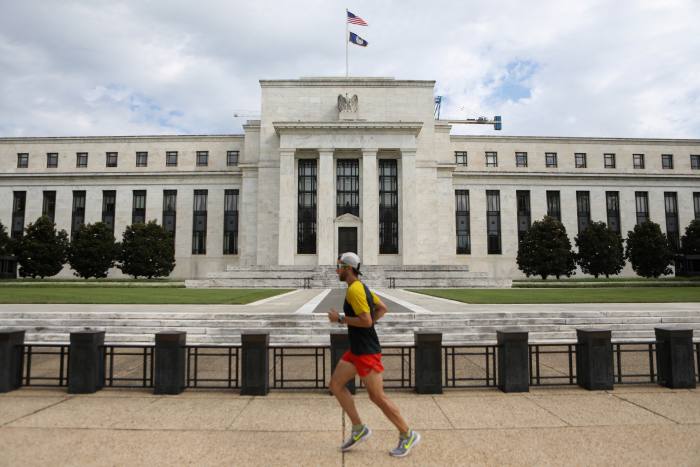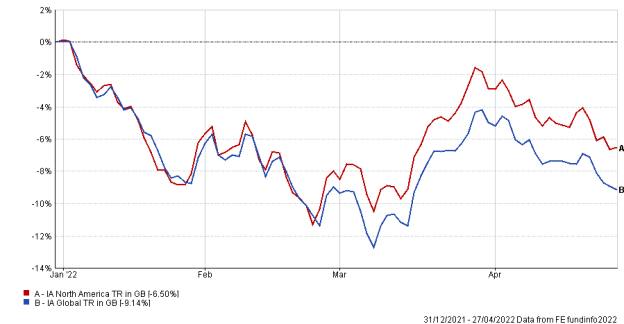
The latest economic data to emerge from the US is poor and may indicate now is the time to take less risk in portfolios according to Hinesh Patel, portfolio manager at Quilter.
His comments came in the context of the latest US GDP data, which shows that, on an annualised basis, economic output shrank by 1.4 per cent in the first three months of 2022.
This was far worse than market expectations of a gain of 1 per cent for the period.
But the Federal Reserve, the country's central bank, has indicated it will raise interest rates this year, despite concerns about economic growth.
Patel called the GDP number a “shocker” and “far worse” than expected, but shared the view that it would not lead to a recession.
At the same time he feels investors should be preparing portfolios for lower economic growth.
He said: "While this headline may be a bit of a shocker, price impact is by far the most dominant factor. Without inflation, the economy grew by a monstrous 6.5 per cent annualised – and that’s including the Omicron overhang.
"As such, it’s little wonder the Fed is forced into its current stance. While consumer consumption has been healthy, a natural demand brake is likely on the horizon as a result of high prices and rising wages.
"For investors, the time to buy bonds may well be upon us."
The slack in growth was driven by a decrease in inventory investment (items such as goods related to home improvements) but also a decline in exports and an increase in imports.

But Charles Hepworth, investment director at GAM Investments, said the data "serves as a warning" for those who "slavishly follow" GDP data, as it "is not what it seems".
He said most of the issue related to trade deficits rather than the health of the economy as a whole and "there is no doubt" that the GDP number will be positive in the next quarter.
Hepworth believes the data changes nothing from an investment perspective.
Sarah Giarrusso, investment strategist Tilney Smith and Williamson, said: “Economic growth in the US was always set to moderate in the wake of the strong rebound in economic activity observed throughout 2021.
"In 2021 US real GDP grew 5.7 per cent annualised, the largest increase since 1984. However, as the economy has been heating up, inflation has also been rising and reached a 40 year high of 8.5 per cent annual in the latest March reading.
"The Federal Reserve is in a difficult position to try and bring inflation down without prompting a recession. Even with high levels of inflation and downside pressure on growth, the US economy looks unlikely to fall into recession.
"The year-to-date impact on US equities falling 5.5 per cent (total return, GBP) has been driven mainly by monetary policy.”
Richard De Lisle, who runs the VT De Lisle America fund, said the US economy had a “robustness” which was not really evident in European economies right now, and added he has been investing in the more economically sensitive sectors.





